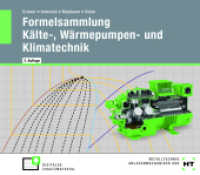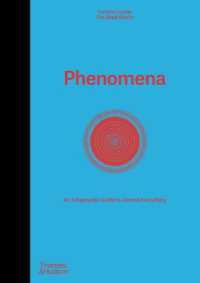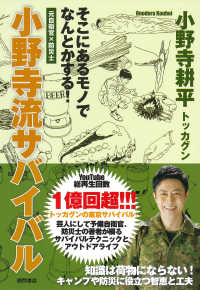基本説明
New in paperback. Hardcover was published in 2005.
Full Description
Toorawa re-evaluates the literary history and landscape of third to ninth century Baghdad by demonstrating and emphasizing the significance of the important transition from a predominantly oral-aural culture to an increasingly literate one. This transformation had a profound influence on the production of learned and literary culture; modes of transmission of learning; nature and types of literary production; nature of scholarly and professional occupations and alliances; and ranges of meanings of certain key concepts, such as plagiarism. In order to better understand these, attention is focused on a central but understudied figure, Ibn Abi Tahir Tayfur (d. 280 to 893), a writer, schoolmaster, scholar and copyist, member of important literary circles, and a significant anthologist and chronicler. This book will appeal to anyone interested in Arabic literary culture and history, and those with an interest in books, writing, authorship and patronage.
Contents
Introduction 1. From Memory to Written Record 2. Being a Bookman in Baghdad 3. Navigating Partisan Shoals in Writerly Baghdad 4. Writerly Networks of Baghdad 5. Ibn Abi Tahir's Output and Writerly Culture 6. Ibn Abi Tahir's Poetry and Writerly Culture Conclusion: Revisiting Arabic Literary History







